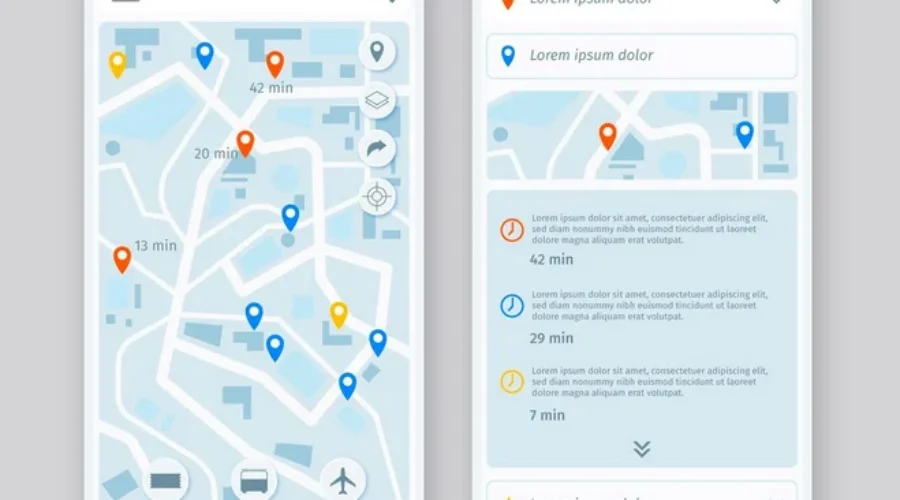Local SEO for Toronto Businesses: Rank Higher in Google Maps
In today’s digital landscape, appearing at the top of Google Maps searches can make or break a Toronto business. With over 80% of consumers using search engines to find local businesses, mastering local SEO has become essential for Toronto entrepreneurs looking to capture their share of the city’s competitive market. This comprehensive guide will walk you through proven strategies to dominate local search results and attract more customers to your Toronto business.
Understanding Local SEO in Toronto’s Competitive Market
Local SEO differs significantly from traditional SEO because it focuses on geographic relevance and proximity. For Toronto businesses, this means competing not just against businesses across Canada, but specifically against other companies in your neighborhood, district, or the Greater Toronto Area (GTA). Google’s algorithm considers factors like distance, relevance, and prominence when determining local rankings.
The stakes are particularly high in Toronto, where businesses face intense competition across diverse neighborhoods from downtown Financial District to suburban areas like Mississauga and Markham. Understanding how Google evaluates local businesses is crucial for developing an effective strategy that cuts through the noise.
The Toronto Local Search Landscape
Toronto’s unique urban structure presents both opportunities and challenges for local SEO. The city’s distinct neighborhoods each have their own character and search patterns. A restaurant in Kensington Market competes differently than one in Yorkville, and your local SEO strategy should reflect these nuances.
Research shows that Toronto consumers frequently include neighborhood names in their searches, such as “best pizza King Street West” or “dentist near Danforth Avenue.” This hyperlocal search behavior means businesses must optimize for both broad city-wide terms and specific neighborhood keywords.
Optimizing Your Google My Business Profile
Your Google My Business (GMB) profile serves as the foundation of your local SEO strategy. A fully optimized GMB profile can significantly improve your chances of appearing in the coveted “Local Pack” – the three business listings that appear prominently in Google search results.
Complete Profile Information
Start by ensuring every field in your GMB profile is completely filled out. Include your exact business name, complete address with proper Toronto postal code formatting, phone number, website URL, and accurate business hours. For Toronto businesses, pay special attention to seasonal hour changes, as many establishments adjust their schedules during summer festivals or winter months.
Select the most accurate business categories available. Primary categories carry the most weight, so choose the one that best describes your core business. Secondary categories can capture additional services or specializations. For example, a Toronto restaurant might choose “Restaurant” as primary and “Italian Restaurant” and “Wine Bar” as secondary categories.
Leveraging Toronto-Specific Keywords
Your GMB description should naturally incorporate Toronto-specific keywords while remaining readable and informative. Instead of generic descriptions, highlight what makes your business unique to Toronto. Mention serving specific neighborhoods, proximity to landmarks like CN Tower or Hockey Hall of Fame, or specializing in services that cater to Toronto’s diverse population.
Strategic Keyword Placement
Integrate location-based keywords throughout your GMB content, including in your business description, services, and regular posts. Terms like “downtown Toronto,” “GTA,” specific subway stations, or neighborhood names can help Google understand your service area and relevance to local searches.
Building Local Citations and NAP Consistency
Citations – mentions of your business name, address, and phone number (NAP) across the web – serve as trust signals to Google. Consistent NAP information across directories, websites, and social platforms reinforces your business’s legitimacy and local relevance.
Essential Toronto Business Directories
Beyond major directories like Yelp and Yellow Pages, Toronto businesses should focus on local directories such as BlogTO, Toronto.com, and industry-specific directories. Many Toronto neighborhoods have their own business associations with online directories, such as the Bloor West Village Business Improvement Area or Distillery District listings.
Government directories also carry significant weight. Ensure your business is listed in relevant City of Toronto directories, Ontario business registries, and any applicable professional association directories if you operate in regulated industries.
Managing NAP Consistency
Inconsistent business information across platforms can confuse Google and hurt your local rankings. Common issues include using different formats for your address (abbreviating “Street” vs. “St.”) or listing different phone numbers. Create a master document with your exact NAP information and use it consistently across all platforms.
Generating and Managing Customer Reviews
Reviews significantly impact local search rankings and customer trust. Google considers both the quantity and quality of reviews when determining local search positions. For Toronto businesses, this means developing a systematic approach to encouraging satisfied customers to leave reviews.
Review Generation Strategies
Timing is crucial when asking for reviews. The best moment is immediately after a positive interaction when customer satisfaction is highest. For service-based businesses, this might be after project completion. For retail businesses, consider following up via email a few days after purchase.
Make the review process as simple as possible for customers. Provide direct links to your Google My Business review section, and consider creating QR codes that customers can scan to leave reviews immediately. Train your staff to naturally mention reviews during positive interactions without being pushy.
Responding to Reviews Professionally
Every review deserves a response, both positive and negative. Thank customers for positive reviews and address their specific comments to show you value their feedback. For negative reviews, respond professionally and offer to resolve issues offline. This demonstrates to potential customers that you care about customer satisfaction.
Creating Location-Specific Content
Content marketing plays a vital role in local SEO success. Toronto businesses should create content that demonstrates local expertise and serves the local community’s needs. This might include blog posts about local events, neighborhood guides, or industry insights specific to the Toronto market.
Neighborhood-Focused Content Strategy
Develop content that speaks directly to different Toronto neighborhoods you serve. A home renovation company might create separate landing pages for “Kitchen Renovations in The Beaches” and “Bathroom Renovations in Forest Hill,” each optimized for those specific areas and their unique characteristics.
Include local landmarks, events, and cultural references in your content. This helps Google understand your local relevance and provides value to readers who are familiar with the area. Content about navigating Toronto’s parking regulations, seasonal business considerations, or serving the city’s diverse communities can establish your local authority.
Event-Based Content Opportunities
Toronto hosts numerous events throughout the year, from the Toronto International Film Festival to Canada Day celebrations. Create content around these events when relevant to your business. A catering company might write about “Corporate Event Catering During TIFF” or a retail store might create “CNE Shopping Guide” content.
Technical SEO for Local Search
Technical SEO elements specifically impact local search performance. Ensure your website loads quickly, is mobile-friendly, and includes proper schema markup to help Google understand your business information.
Schema Markup Implementation
Implement LocalBusiness schema markup on your website to provide Google with structured data about your business. This includes your business name, address, phone number, hours of operation, and customer reviews. Proper schema markup can enhance your search listings with rich snippets.
For Toronto businesses with multiple locations, implement proper schema for each location. This helps Google understand your service areas and can improve your visibility in location-specific searches.
Mobile Optimization for Local Search
Most local searches happen on mobile devices, making mobile optimization crucial for Toronto businesses. Ensure your website loads quickly on mobile connections, which can be challenging during peak hours on Toronto’s busy transit systems.
Design your mobile site with local searchers in mind. Make your phone number clickable, include easy-to-find directions, and ensure your contact information is prominently displayed. Consider implementing click-to-call functionality and integration with mapping applications.
Measuring Local SEO Success
Track your local SEO performance using Google My Business Insights, Google Analytics, and specialized local SEO tools. Monitor key metrics including search visibility, website traffic from local searches, direction requests, and phone calls generated from your GMB listing.
Key Performance Indicators
Focus on metrics that directly impact your business goals. For most Toronto businesses, this includes tracking rankings for location-specific keywords, monitoring the number of “near me” searches that lead to your business, and measuring conversion rates from local traffic.
Set up Google Analytics to track local traffic patterns and identify which neighborhoods generate the most valuable customers. This information can guide your ongoing content strategy and help you identify expansion opportunities within the GTA.
Advanced Local SEO Tactics
Once you’ve mastered the basics, consider advanced tactics like local link building, community involvement documentation, and hyperlocal content creation. Partner with other Toronto businesses for cross-promotion opportunities, sponsor local events, and engage with community organizations.
Building Local Authority
Establish your business as a local authority by participating in Toronto business communities, contributing to local publications, and engaging with local media. Media mentions and local partnerships can provide valuable backlinks and increase your local relevance signals.
Consider joining Toronto-specific business organizations, industry associations, and community groups. Active participation in these organizations can lead to natural link-building opportunities and increase your local visibility.
Common Local SEO Mistakes to Avoid
Many Toronto businesses make critical errors that hurt their local search performance. Avoid using virtual offices or P.O. boxes as your business address, as Google requires a physical business location. Don’t stuff keywords unnaturally into your business name or description.
Resist the temptation to create fake reviews or use review services that generate inauthentic feedback. Google’s algorithms are increasingly sophisticated at detecting fake reviews, and the penalties can be severe.
Staying Current with Local SEO Changes
Google frequently updates its local search algorithms, and what works today might not work tomorrow. Stay informed about local SEO best practices by following industry publications, attending Toronto digital marketing events, and monitoring your performance metrics regularly.
The local SEO landscape in Toronto continues to evolve as the city grows and changes. New neighborhoods develop, consumer behavior shifts, and Google refines its algorithms. Successful businesses adapt their strategies accordingly while maintaining consistent optimization efforts.
Frequently Asked Questions
1. How long does it take to see results from local SEO efforts in Toronto? Local SEO results typically begin appearing within 3-6 months of consistent optimization efforts. However, highly competitive Toronto markets may require 6-12 months to see significant ranking improvements. The timeline depends on your industry, competition level, and the current state of your online presence.
2. Is Google My Business optimization enough for local SEO success? While Google My Business optimization is crucial, it’s not sufficient alone. Successful local SEO requires a comprehensive approach including website optimization, local citations, review management, and content creation. GMB is the foundation, but you need additional tactics to compete effectively in Toronto’s market.
3. How important are reviews for local SEO in Toronto? Reviews are extremely important for Toronto businesses, impacting both search rankings and customer trust. Google considers review quantity, quality, and recency when determining local rankings. Aim for a steady stream of authentic reviews and respond professionally to all feedback.
4. Should I optimize for specific Toronto neighborhoods? Yes, optimizing for specific neighborhoods is essential for Toronto businesses. Create separate landing pages or content for each area you serve, incorporating neighborhood-specific keywords and local landmarks. This strategy helps capture hyperlocal search traffic.
5. What’s the difference between local SEO and regular SEO? Local SEO focuses on geographic relevance and proximity, targeting customers in specific locations. Regular SEO targets broader, non-location-specific keywords. Local SEO emphasizes factors like Google My Business optimization, local citations, and neighborhood-specific content.
6. How often should I update my Google My Business listing? Update your GMB listing whenever business information changes, and post new content at least weekly. Regular updates signal to Google that your business is active and engaged with customers. Seasonal hour changes, new services, or special promotions should be updated immediately.
7. Can I do local SEO myself, or do I need to hire a professional? Basic local SEO can be managed in-house with proper knowledge and time investment. However, Toronto’s competitive market often requires professional expertise for optimal results. Consider your available time, technical skills, and budget when deciding between DIY and professional services.
8. What are local citations, and how many do I need? Local citations are mentions of your business name, address, and phone number across the web. Quality matters more than quantity – focus on authoritative directories and industry-specific sites. Most Toronto businesses benefit from 50-100 high-quality citations rather than hundreds of low-quality ones.
9. How do I handle negative reviews affecting my local SEO? Respond professionally to negative reviews, address legitimate concerns, and offer to resolve issues offline. Don’t ignore negative feedback, as this can hurt your reputation. Focus on generating more positive reviews to dilute the impact of negative ones naturally.
10. Is it worth advertising on Google Maps for local SEO? Google Ads can complement your organic local SEO efforts by providing immediate visibility while your organic rankings improve. Local Services Ads are particularly effective for service-based Toronto businesses. However, paid advertising should supplement, not replace, your organic local SEO strategy.
Disclaimer:
This article is for informational purposes only. While we strive for accuracy, SEO algorithms and best practices change frequently. Results may vary based on competition and implementation. Toronto Business Pages or its partners assume no liability for any actions taken based on this information. Readers should conduct their own research and consider consulting with qualified digital marketing professionals before making significant changes to their online presence.



